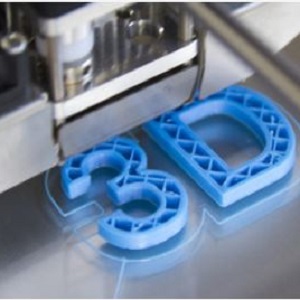Covestro has partnered Silicon Valley based tech company Carbon to upscale 3D Printing process
to meet industrial demand of mass production.
Joint Forces to Prove Mass Production Viability
Silicon Valley based company Carbon has developed Digital Light Synthesis™ (DLS™) technology,
which can accelerate the production of parts up to a hundredfold compared to previous processes.
After years of R&D, Carbon developed a novel polyurethane liquid resin suitable for production parts.
Covestro is a key partner in the scale-up and high-volume production of this material.
Covestro is a key partner in the scale-up and high-volume production of this material.
The company invested a significant sum to enable the production in commercial quantity.
As a result, joint forces proving mass production viability of the 3D-printing process and the
respective material.
"Our biggest challenge in the upscaling of additive manufacturing until series production lies in the supply of suitable materials in the required quality and quantity," explains Patrick Rosso, global head of additive manufacturing at Covestro. "By partnering with companies like Carbon, we are pushing existing scale boundaries and supporting various industries along the value chain on their way to digital mass production.”
Production Using DLS™ Technology on a Large Scale
Efficient manufacturing process DLS™ technology developed by Carbon, is now being used for the
first time on a large scale. Like stereolithography, the workpiece is created in a vat of liquid plastic
resin that is cured by means of UV radiation.
At Carbon’s DLS™ technology, oxygen is supplied from below to counteract the curing and thus
At Carbon’s DLS™ technology, oxygen is supplied from below to counteract the curing and thus
creating a liquid dead zone. For this purpose, the bottom of the vessel is made of a light- and
air-permeable membrane, like a contact lens. Due to this dead zone, the printed part can be
pulled continuously upward without the formation of individual layers.
Production using DLS™ technology is up to 100 times faster than with stereolithography – another
Production using DLS™ technology is up to 100 times faster than with stereolithography – another
important prerequisite for industrial mass production. In that context, a proprietary process combines
software, hardware and materials. It imparts the desired technical and mechanical properties to the
finished parts.
3D printing offers unique opportunities to produce three-dimensional, often complex shaped parts
Rising Demand of 3D Printing in Industrial Mass
Production
3D printing offers unique opportunities to produce three-dimensional, often complex shaped parts
in one single step. While predominantly prototypes and sample parts have been produced in small
numbers so far, many industries are increasingly interested in industrial mass production.
Covestro is currently researching materials to enable an extended range of industrial applications.
Covestro is currently researching materials to enable an extended range of industrial applications.
To this end, the company is upgrading laboratories for 3D printing at its Leverkusen, Pittsburgh and
Shanghai sites, where it develops and tests material solutions for serial additive manufacturing in
collaboration with different customers.
Source: Covestro
Source: Covestro
Online Course Recently Added
Master Plastics Compounding with Essential Concepts &Techniques (Part-2)
 4
4

Master the compounding process to meet new performance challenges and today’s consumers’ demands to get to profits sooner. Leading expert, Luis Roca will share global concepts & practical tips to...





No comments:
Post a Comment